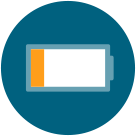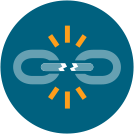HOW MUCH ARE YOU IMPACTED BY FATIGUE?
People living with CAD may feel the impact of chronic fatigue caused by anemia in a variety of ways, including affecting their physical health and daily routine.
Use the sliders below to explore the impact of fatigue with our calculator.*
On average, how many days (0-7) per week are you impacted by fatigue in the following areas:
How many days do you have trouble staying awake during the day?
How many days do you struggle to carry out everyday or routine activities?
How many days does fatigue impact your ability to start a new task?
How many days are you too fatigued to finish a task?
How many days do you need someone's help to complete your usual activities because of your fatigue?
Based on your answers, fatigue affects you 0 out of 7 days per week on average.
Your Fatigue Time
0 OUT OF 7 DAYS WITH FATIGUE
*This calculator is provided for self-reflection and is not a diagnostic tool. Your healthcare professional is the best source of information regarding your health. Please consult your healthcare professional if you have any questions about your health or treatment.






